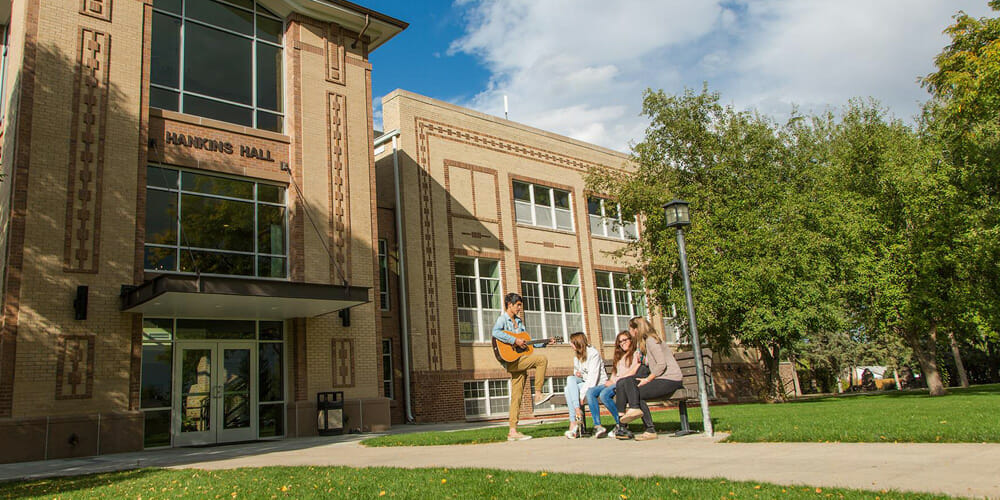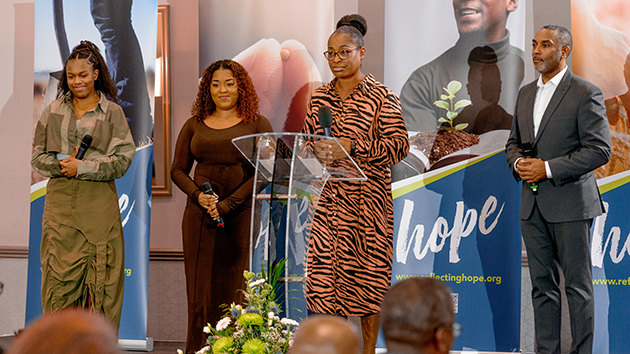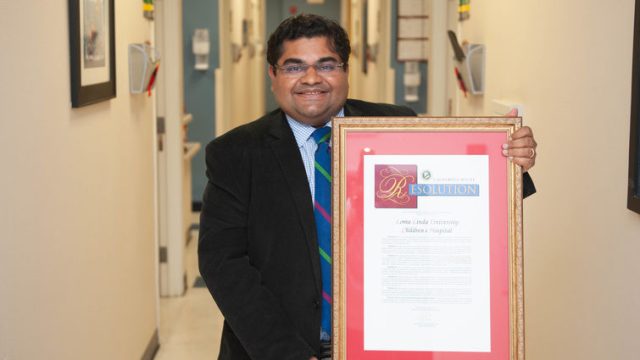Waiting for a flight out of Chicago, Campion church pastor Micheal Goetz watched travelers at the United Airlines customer service counter trying to […]

Waiting for a flight out of Chicago, Campion church pastor Micheal Goetz watched travelers at the United Airlines customer service counter trying to negotiate alternate flights after theirs had been missed or canceled. The lines were long, and the staff behind the counter were busy. He then noticed some young people wearing bright-yellow United shirts moving up and down the lines asking if they could answer questions or provide clarifications. They were unable to solve many of the problems, but they were doing their best to assist and listen. Based on this experience, Goetz concluded three things:
- Young people were clearly identified as members of the United team. United “owned” them, and they had ownership in United.
- While they weren’t making corporate decisions, flying the planes, or adjusting flight plans, the young interns were contributing, and it seemed likely that their futures would include United.
- Although what the young people were doing didn’t appear to be of major consequence, customers seemed to appreciate someone reaching out to them. The interns were important to the overall effectiveness of United Airlines.
This business model struck Goetz as being parallel to the church’s goal of discipling young people. Because Campion Academy, in Loveland, Colorado, United States, is located next to the Campion church, he envisioned the entire campus collaborating in mentoring students and giving them “ownership” of their church.
Embracing the Vision
Goetz, principal Don Reeder, and others brainstormed on ways to strengthen student discipleship on campus. They agreed that young people should be trained through mentoring and by providing them with opportunities to “own” their local church. The mission plan they developed was “to equip young Seventh-day Adventists as leaders in their church and as gospel missionaries wherever they went.”
They began by enlisting the help of the academy staff and asking them to encourage students to participate in church services. The boys’ deans then recruited dorm students to be parking greeters on Sabbath morning. The students greeted visitors as they pulled up in their cars; directed them as to where to park; helped carry potluck food; and provided umbrellas when needed. They played an important role in church hospitality.
Program Growth
Today the Campion church and academy are working together even more fully to “encourage the growth of a generation that knows how to connect with a local church, become involved, and join in the mission,” Campion chaplain Rob Carlson explains.
Campion church has since moved beyond just student parking greeters. They’ve identified numerous additional possibilities for student participation in everything from providing music to helping in Sabbath Schools, ushering, and more. The academy Bible teachers also now require students to log at least 10 experiences of church involvement or service throughout the school year.
“I mostly like doing praise time or playing the violin,” says sophomore Ashley Halvorsen. “Even if it wasn’t required [for Bible class], I’d still be playing up front.”
The success of the program depends in part on church members who are willing to mentor teens. Carey Jordan leads the junior Sabbath School class, along with the help of a core group of Campion students. She depends on students to lead praise time and teach the lesson each week.
“If I know they’re coming, I can give them something to do,” says Jordan.
Other departments are also willing to mentor. Elders explain how to call the congregation to worship, and the worship pastor rehearses praise songs with student musicians.
Junior James Freeman helps run the cameras and the sound for church services. “They trained me,” he explains. “I was brand new to the task. I think it’s nice that it’s not just the adults who run the program. They’re letting the teenagers who are good at this kind of stuff help out too.”
“I love this church,” said Celine Lumowa, who led one of the praise teams for the academy’s weekly chapel and vespers services when attending Campion last year as a senior. “They let us be involved.”
“We don’t just go [to church] there,” adds senior Logan Carle, who plays his bagpipes during praise time. “We’re actually part of it.”
Collaborating for Mission
“There’s a great desire for the church and school to work together,” says Carlson. “It’s exciting to be part of that!”
Carlson works with the spiritual life committee, which includes the principals of Campion Academy and H.M.S. Richards Adventist School, church pastors, and Bible teachers. The group meets monthly to envision and implement spiritual goals. Principal Reeder encourages the group to focus on the objective of Adventist education: to support the mission of the church. Adventist schools, he says, are a tool the church is using to take the gospel to the world.
“We’re tired of hearing the statement ‘Our kids are leaving the church,’ ” says Reeder. “We believe that by training students to participate in and be a part of the church, when they leave Campion they will be trained to lead in their home churches and be less likely to leave the church.”
Reeder presents Philemon 6 as the basis for this belief: “I pray God will give you a chance to share your faith so you can know the fullness of Christ”
(Reeder’s paraphrase). Only in
taking ownership of their church and faith can young people know the fullness of our Savior, he says.
Campion’s church-academy collaboration has allowed many students to find a niche of involvement, and once students take ownership of their church, they catch a vision of what more church could be.
It’s good for us to be able to interact with our church,” says sophomore Delainey Kamarad, “but it would be cool if we could open it up to some bigger opportunities—such as reaching out to the community instead of doing things just at the church.”
The United Airlines Model
The model used by United Airlines has played itself out on the Campion campus:
Young people have identified themselves as part of the team. They see themselves as a contributing part of the Seventh-day Adventist Church.
While they don’t sit on boards and committees, these young people are contributing to the overall ministry of the church through various ministries. And the buy-in at this level will lead to continued commitment in the future.
Church attenders are touched and encouraged when a young person offers to carry in their food, brings them an umbrella, and tells a story to children in Sabbath School. The overall impact and effectiveness of the Campion church to its community is made better because of the participation of the ministry “interns.”
As Delainey notes, there’s more work to be done. As more teenagers catch the spark of the church’s mission, Campion Academy aims to continue to work hand in hand with this force of young people.
To learn more about Campion Academy, go to www.campion.net. n
Jennifer Sigler teaches English at Campion Academy in Loveland, Colorado, United States. Micheal Goetz is pastor of the Campion church.








